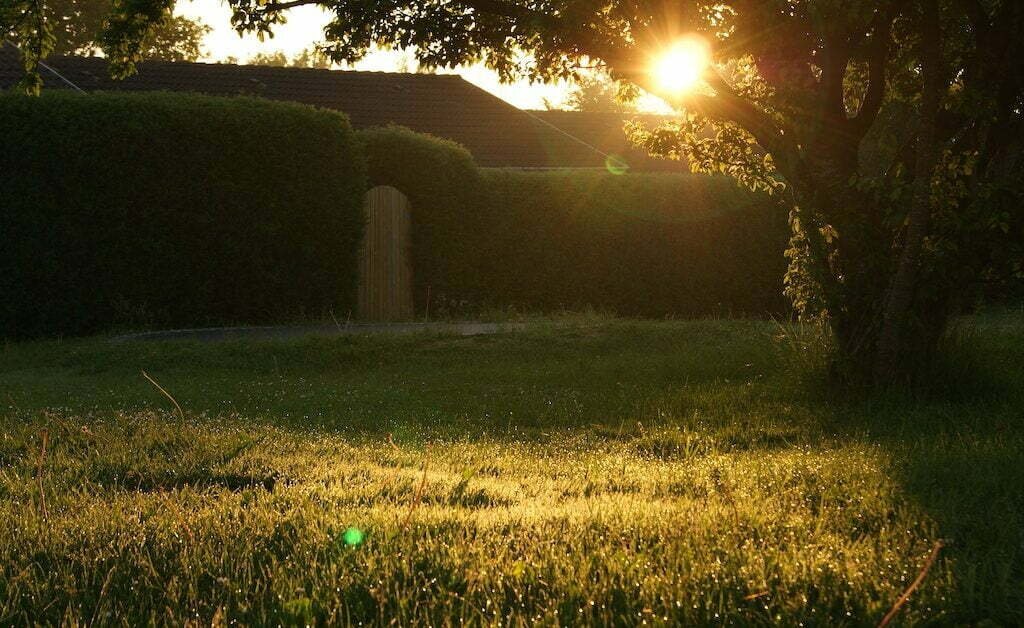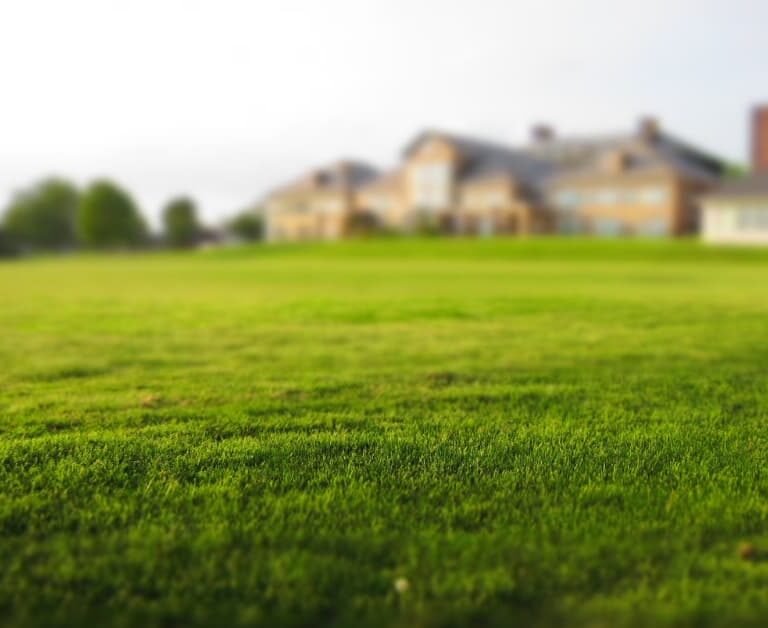
Have you ever found yourself wondering, “Can I pee in my backyard?” While it may seem like a bizarre question, many homeowners have considered the pros and cons of outdoor urination on their private property.
We’ll dive into the legalities surrounding this topic as well as explore its environmental impact and potential health risks.
We will also discuss some alternatives to peeing in your backyard and important considerations before deciding to do so.
Is It Legal And Safe To Pee In Your Backyard?
In the United States, peeing in your own backyard is legal as it is considered private property, but it’s important to understand local regulations and public urination laws.
Understanding Local Regulations And Public Urination Laws
Navigating local regulations and public urination laws is essential for homeowners considering peeing in their backyard. While it is generally legal to urinate on your private property, doing so while visible to neighbors or the public may result in charges of public urination or indecent exposure.
For example, Illinois has specific ordinances against public urination, which can lead to fines and even jail time if convicted multiple times. It’s crucial to understand how these laws apply in your region before taking matters into your own hands (or yard).
Additionally, consider potential implications when disposing of urine after using portable toilets or containers – inappropriate dumping can bring about its own set of legal issues.
Environmental Impact Of Urinating Outdoors
Peeing in your backyard might seem like an eco-friendly option, but it can have negative environmental impacts. Urine is high in nitrogen and phosphorus, which are beneficial to plants when used as fertilizer.
Animals may be attracted to the smell and potentially spread disease through contact with your waste.
Additionally, urine contains bacteria that may be harmful to wildlife if not disposed of properly. For instance, if you pee near a pond or lake where birds feed or drink, they could contract diseases from the contaminated water and die.
To reduce your impact on the environment while still enjoying the convenience of peeing outside at home, consider diluting urine with water before applying it as fertilizer or composting instead of dumping it in nature undiluted.
Overall, while there are benefits to outdoor urination such as reducing UTI risk, ensuring proper sanitation practices is necessary for both personal health and environmental conservation efforts in our communities.
Alternatives To Peeing In Your Backyard
You can consider building an outdoor outhouse or installing a composting toilet as an alternative to peeing in your backyard.
Building An Outdoor Outhouse Or Installing A Composting Toilet
If you’re looking for a more permanent solution to outdoor urination, building an outdoor outhouse or installing a composting toilet might be the way to go. Here are some things to consider when considering these options:
-
- An outdoor outhouse can provide a more private and enclosed space for urinating outdoors. It can also be used as a storage space for gardening tools and equipment.
-
- When building an outdoor outhouse, it is important to follow local regulations and obtain any necessary permits. It should also be located away from any natural water sources and at least 100 feet from any neighboring properties.
-
- Composting toilets use natural processes to break down human waste into compost that can be used as fertilizer. They are odorless and do not require water or electricity. They can also help conserve water in areas with limited resources.
-
- Installing a composting toilet requires some initial investment but can save money on water bills in the long run. It is important to choose a model that meets local regulations and has adequate ventilation and drainage systems.
-
- Both options require regular maintenance and cleaning to ensure proper sanitation and minimize environmental impact.
Remember, whether building an outdoor outhouse or installing a composting toilet, it is essential to comply with local laws and regulations. Always prioritize health, safety, privacy, and environmental responsibility when disposing of urine or other bodily waste materials outdoors.
Using Portable Toilets Or Urination Devices
If you’re looking for an alternative to peeing in your backyard, there are several portable options available.
Here are some options to consider:
- Portable toilets: These can be rented or purchased and provide a more traditional bathroom experience with a seat and waste containment system. They are often used for outdoor events, camping trips, or construction sites.
- Urine diverting systems: These systems separate urine from other wastes and collect it in a container for later disposal. Some models are designed specifically for outdoor use and can be easily transported or installed.
- Female urination devices (FUDs): FUDs allow women to pee standing up, which can be helpful if there are no restroom facilities nearby. There are several different types available, including disposable paper funnels and reusable silicone devices.
- Bedside commodes: While typically used indoors as a mobility aid for elderly or disabled individuals, bedside commodes can also be used outdoors. They provide a seat and container for waste collection.
Remember to dispose of waste properly according to local regulations and sanitation guidelines. If you’re using a portable toilet or urine-diverting system, follow the manufacturer’s instructions for emptying and cleaning.
Designating An Indoor Bathroom For Outdoor Activities
If you don’t want to pee in your backyard but also don’t want to constantly track dirt through your house, consider designating a bathroom for outdoor activities.
This may be a bathroom with easy access from your backyard or even an unused guest bathroom that can be easily cleaned and sanitized after each use.
Not only does this option prevent potential legal issues or environmental concerns associated with outdoor urination, but it also keeps the mess contained within your home.
Plus, having a designated space for outdoor activities can make clean-up easier since everything is already in one place.
Considerations Before Peeing In Your Backyard
Choose a proper location for outdoor urination and make sure to dispose of the waste properly, such as using a designated area or diluting it with water before scattering.
Proper Location And Disposal Methods
When peeing in your backyard, it’s important to choose an appropriate location and dispose of urine properly. Try to choose a spot that is away from high-traffic areas like walkways or sitting areas, and not too close to any food plants.
To dispose of urine properly, consider adding it directly to a compost pile where it can break down naturally with other organic matter. If you don’t have a compost pile set up yet, you could also pour the urine onto non-edible garden soil or even grass instead of just dumping it into the regular trash.
Keep in mind that while urine contains valuable nutrients for plants like nitrogen and phosphorus, human waste may contain harmful bacteria and pathogens that could contaminate water sources or cause health issues for others.
Overall, peeing in your own backyard can be convenient and perfectly legal so long as you are mindful about where you’re doing it and how you’re disposing of the waste safely without harming yourself or others around you including pets.
Use Of Biodegradable Products And Minimizing Impact On Wildlife
When it comes to peeing in your backyard, it’s important to consider the environmental impact of outdoor urination. One way to minimize this impact is by using biodegradable products instead of traditional toilet paper.
This can include options such as bamboo and recycled paper that will quickly decompose in nature. Additionally, it’s important to be mindful of the wildlife in your area.
Avoid urinating near water sources or areas where animals may consume or come into contact with your waste.
Did you know that urine contains phosphorus, nitrogen, and potassium – all nutrients found in common garden fertilizers? With a little careful consideration and planning, you can even utilize your urine for its fertilizer properties while minimizing its impact on wildlife and the environment around us.
Privacy And Visibility To Neighbors And Passersby
When using your backyard as a restroom, it is crucial to ensure that you are not visible to others. Even though it is legal, peeing in your backyard can lead to uncomfortable situations with neighbors or even police officers if they catch you in the act.
To avoid this, consider installing a privacy fence or choosing a spot far away from any viewpoints.
It’s important to keep in mind that visibility isn’t just limited to next-door neighbors – passersby on public sidewalks or streets could potentially see into your yard as well.
If you’re concerned about this possibility, consider adding strategic landscaping features like tall bushes or trees for natural barriers. Proper disposal methods are also important – urine should never be dumped directly onto plants as it can cause damage due to its high salt content.
Instead, dilute it with water before use or discard it properly by flushing down an indoor toilet or composting it in a designated area within your property.
Conclusion: Weighing The Pros And Cons Of Outdoor Urination And Making The Best Decision For You And Your Community
While it is legal to pee in your own backyard, there are important factors to consider such as environmental impact and health risks. It’s essential to understand local regulations and ensure privacy when urinating outdoors.
Alternatives such as building an outdoor outhouse or using portable toilets can also be considered. Ultimately, the decision boils down to what is best for you and your community while minimizing any potential negative effects on the environment and public spaces.




